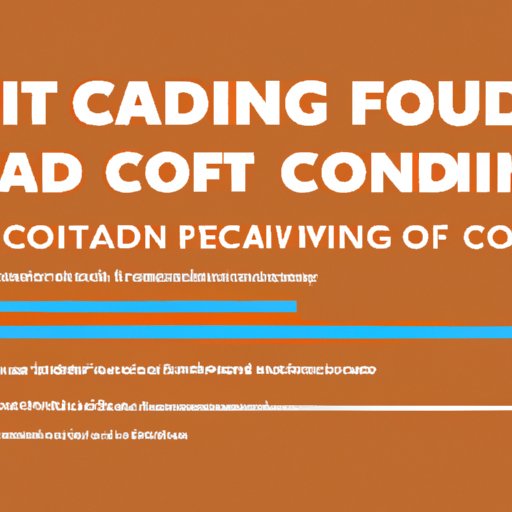Introduction
Coding bootcamps are an increasingly popular option for individuals looking to gain skills in software engineering or data science. These intensive programs provide students with a comprehensive education in coding and related topics, often in a fraction of the time it would take to get a traditional degree. While coding bootcamps can be expensive, financial aid may be available to help cover the cost.

Pros and Cons of Financial Aid for Coding Bootcamps
Financial aid can be a great way to make coding bootcamps more affordable, but there are some pros and cons to consider before applying.
Pros
The primary benefit of using financial aid to pay for a coding bootcamp is that it can reduce the cost of tuition significantly. This can make coding bootcamps more accessible to those who might not otherwise be able to afford them. Additionally, many coding bootcamps have partnerships with lenders who offer competitive interest rates, so students can pay off their loans over time.
Cons
One of the downsides of using financial aid to pay for a coding bootcamp is that it can be difficult to qualify for loans. Additionally, taking out a loan means that students will need to start repaying it as soon as they finish the program, which can be a significant burden. Finally, if students don’t complete the program or find a job afterwards, they may still be responsible for repaying the loan.

Guide to Financing a Coding Bootcamp with Financial Aid
For those who are considering using financial aid to pay for a coding bootcamp, there are a few things to keep in mind. Here is a guide to financing a coding bootcamp with financial aid.
Types of Financial Aid Available
There are several types of financial aid available to those looking to pay for a coding bootcamp. These include federal student loans, private student loans, grants, scholarships, and employer tuition reimbursement programs. Each type of financial aid has its own eligibility requirements and application process, so it’s important to research all of your options before deciding which one is best for you.
Eligibility Requirements
In order to qualify for financial aid, you must meet certain eligibility requirements. Generally speaking, these include having a valid Social Security number, being a U.S. citizen or eligible non-citizen, and demonstrating financial need. Additionally, some lenders may require you to have a cosigner or guarantor on your loan in order to be approved.
How to Apply
Once you’ve determined what type of financial aid you’d like to apply for, you’ll need to fill out the necessary paperwork. Most applications require basic information such as your name, address, date of birth, and Social Security number. You’ll also need to provide information about your school, the amount of money you’re requesting, and any other relevant information. Once you’ve submitted the application, it will typically take a few weeks for the lender to review and approve it.

What You Need to Know About Financial Aid for Coding Bootcamps
Before applying for financial aid to pay for a coding bootcamp, there are a few important things to consider.
Cost Considerations
It’s important to remember that financial aid is not free money – you will still need to repay any loans you take out. Additionally, some lenders may charge origination fees and other costs associated with the loan, so it’s important to read the fine print carefully before signing any documents.
Impact on Credit Score
Taking out a loan can have an impact on your credit score. If you miss payments or default on the loan, your credit score could suffer. It’s important to make sure you understand the terms of the loan and make sure you can afford the payments before applying.
Tax Implications
Depending on your circumstances, you may be able to deduct some of the costs of attending a coding bootcamp on your taxes. This can help reduce the overall cost of the program and make it more affordable. However, it’s important to consult a tax professional to make sure you understand the rules and regulations when it comes to deducting educational expenses.
How to Make the Most of Financial Aid for Coding Bootcamps
If you’re planning to use financial aid to pay for a coding bootcamp, there are a few steps you can take to make the most of it.
Research All Funding Sources
Before applying for financial aid, it’s important to research all of the available funding sources. This includes federal student loans, private student loans, grants, scholarships, and employer tuition reimbursement programs. Be sure to compare the terms and conditions of each option to determine which one is best for you.
Consider Alternatives
In addition to financial aid, there are other ways to pay for a coding bootcamp. For example, some coding bootcamps offer deferred tuition plans, which allow students to pay for the program over time without taking out a loan. Additionally, some employers may be willing to cover part or all of the cost of the program. It’s important to explore all of your options before making a decision.
Start Early
Applying for financial aid can be a long and complex process, so it’s important to start early. Make sure you give yourself plenty of time to complete the application and gather all of the required documents. This will help ensure that your application is processed quickly and you can start the program as soon as possible.
The Benefits of Financial Aid for Coding Bootcamps
Using financial aid to pay for a coding bootcamp can have several benefits.
Lower Costs
The primary benefit of using financial aid to pay for a coding bootcamp is that it can reduce the cost of tuition significantly. This can make coding bootcamps more accessible to those who might not otherwise be able to afford them. Additionally, many coding bootcamps have partnerships with lenders who offer competitive interest rates, so students can pay off their loans over time.
Increased Accessibility
Financial aid can also make coding bootcamps more accessible to those who may not have access to other forms of funding. This can open up opportunities for those who may not otherwise be able to afford the program.
Improved Career Prospects
Finally, using financial aid to pay for a coding bootcamp can have a positive impact on your career prospects. By completing the program, you will gain valuable skills and knowledge that can help you land a job in the tech industry. Additionally, having a coding bootcamp on your resume can make you more attractive to potential employers.
Conclusion
Financial aid can be a great way to make coding bootcamps more affordable, and there are several benefits to using it. From lower costs and increased accessibility to improved career prospects, financial aid can help you get the most out of your coding bootcamp experience. However, it’s important to remember that financial aid is not free money, and you will still need to repay any loans you take out. Before applying for financial aid, make sure you understand the eligibility requirements, the application process, and the potential impacts on your credit score. With the right preparation and research, financial aid can be a great way to make coding bootcamps more accessible and help you achieve your career goals.
(Note: Is this article not meeting your expectations? Do you have knowledge or insights to share? Unlock new opportunities and expand your reach by joining our authors team. Click Registration to join us and share your expertise with our readers.)
